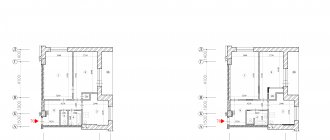Buying a garage, at first glance, is an easy process. Not such an expensive purchase as an apartment or house. There is no need to spend a lot of time studying documentation, as when choosing a land plot. However, the purchase and sale transaction of a garage hides a lot of features that you should know about in advance. How not to miss anything and quickly buy a garage, read our material.
What is a garage?
For any motorist, a garage is a place where a car, motorcycle or other vehicle is stored, as well as tools for servicing them. Many people use the garage as a warehouse and store unnecessary things in it.
The term “garage” does not exist in the legislation. Therefore, it can be called by different names, both real estate and immovable property that can be moved. All construction, purchase, sale and registration actions are regulated by general regulations: Civil and Town Planning Codes, Federal Law “On State Registration of Real Estate”.
What type of property is it?
A building that is insignificant in volume does not exempt you from questions that may arise when purchasing it or constructing it yourself. These difficulties primarily affect the list of documents that will need to be collected. The main thing here will be what type of garage box it is. Depending on the type of real estate, different documents may be required.
OLYMPUS DIGITAL CAMERA
A certain list of papers is needed for movable or immovable property. Any light building that can be redirected to another location is considered movable. Such property may include a metal garage. Real estate is something global and capital, having a solid foundation and a rigid connection to the ground, for example, a brick garage.
A garage is movable property and can be moved
Buying such a property is the easiest way to buy a suitcase, a bicycle or a fur coat. There is no need to register the transaction with Rosrestrei.
If the cost of the garage is less than 10 thousand rubles, then you can agree on the price verbally. Above - it’s worth putting everything in writing. There is no required form of agreement. The main thing is to write down the price, terms of transfer and what will happen if the deal is terminated.
Important! The land under such a garage is usually municipal or common, so there will be difficulties with its registration. And the authorities may demand that the garage itself be removed at any time. Then you will have to transport it somewhere.
Equipment and transport
It is sometimes possible to include inventory items that are part of the real estate and are functionally related to the building as movable property. For example, when production equipment (a paper machine) is installed on the foundation of a building. This is an independent facility that is suitable for operation only as part of a single paper production complex. In addition, this equipment is usually installed on a special foundation and cannot be moved without damaging it and underground utilities. But if necessary, it can be disassembled, transported to another place and reassembled. According to the Ministry of Finance, such a machine is not real estate and cannot be considered as part of a building. But you need to pay attention to the foundation. If, according to the technical documentation, it is not part of the house, then the costs of its creation increase the cost of the equipment and are not included in the calculation of property taxes. If the foundation is indicated in the technical documentation for the building, then it refers to the real estate as part of the facility (Letter of the Ministry of Finance dated February 25, 2013 No. 03-05-05-01/5288). If the equipment has a foundation, is firmly connected to the ground, and cannot be moved without causing damage, it is incorrect to classify it as movable property.
Cars are also not real estate. For example, a tractor is a vehicle that is not connected to the ground. According to the Civil Code, it does not apply to real estate. Crawler tractors are included in the third depreciation group (Government Decree No. 1 of 01.01.2002).
The lecturer will also talk about the changes in 2019:
- will pay the tax now Why does it apply not only to owners, but also to tenants ?
- Does the presence of registered rights to an object have a qualifying value?
- How to determine the cadastral value if the organization owns only part of the property? How can I challenge ?
Garage - real estate
Such a structure has a solid foundation, main walls are built and cannot be transported.
Important! You are buying not only a garage, but also the land underneath it, so you need both objects to be registered to the seller. To do this, the owner must show two documents before the transaction that will confirm that he is the owner.
To complete the transaction, a purchase and sale agreement is required. It will confirm that the buyer is the new legal owner. Be sure to include the following points in the document in order for the contract to be recognized as concluded:
- passport details of the parties;
- garage address, size and cadastral number. The same applies to the area under the garage;
- condition of the garage, material of walls, roof, etc.;
- cost (in numbers and words);
- ownership information;
- mention the transfer and acceptance certificate, it will need to be drawn up as a separate document.
In some situations, the contract will have to be certified by a notary:
- if it is shared ownership;
- if the owner is incapacitated or under 18 years of age;
- when the transaction takes place by proxy;
- if the sale requires the consent of the wife or husband;
- when there is a rent agreement or assignment of claims;
- if the parties plan to send documents for registration by mail.
To avoid problems in the future, it is important to register ownership after the transaction. Make sure that everything is in order with the documents - the land and garage really belong to the seller. Conclude a purchase and sale agreement, submit documents for re-registration to the MFC. After transferring ownership, give the money to the seller.
What to do if the seller has title to one thing? If this is land, then the problem is solvable. You buy a plot of land, become its owner and can legalize any building on it, or erect a new one.
It is more difficult if the seller only owns the garage, and the land is not his. There may be certain risks if it turns out that another person owns the site and is against the sale. It's worse when the land belongs to the municipality. If construction is planned on it, the garage may be demolished.
On September 1, 2021, the Federal Law of 04/05/2021 No. 79-FZ “On Amendments to Certain Legislative Acts of the Russian Federation” came into force, which was adopted in order to regulate the issues of acquisition by citizens of rights to garages and land plots on which they located (“garage amnesty”).
One of the key issues in applying the Law “On Garage Amnesty” is the distinction between permanent and non-permanent garages, since this circumstance will affect the mechanism for registering the land under them. From the combined interpretation of the provisions of the Civil Code of the Russian Federation, the Town Planning Code of the Russian Federation and established judicial practice, we can determine the following signs that allow us to classify an object as a permanent garage (garages related to real estate): - the object is connected to the land in such a way that its movement without disproportionate damage to it it is not possible for its intended purpose (for example, the object has a foundation), it is created from building materials used for capital construction, such as bricks, concrete slabs, etc.; — the facility has a connection to engineering support networks; — the object has walls and a roof; - the object was built on a plot of land provided (or otherwise allocated) for its construction. If the garage does not meet the criteria allowing it to be classified as immovable property, such a garage will be considered non-capital (movable property). Only rights to real estate (main garages) are subject to state registration in the Unified State Register of Real Estate. Thus, rights to a non-permanent garage cannot be registered. The Urban Planning Code of the Russian Federation stipulates that non-permanent buildings and structures are buildings and structures that do not have a strong connection with the ground and whose design characteristics allow for their movement and (or) dismantling and subsequent assembly without disproportionate damage to the purpose and without changing the basic characteristics of the buildings , structures (including kiosks, sheds and other similar buildings and structures). Assistance to citizens by local government bodies. Federal Law No. 79-FZ dated April 5, 2021 “On Amendments to Certain Legislative Acts of the Russian Federation” (“garage amnesty”) provides that local governments have the right to assist citizens in acquiring rights to garages and land plots on which they located. In this case, the list of specific assistance measures will depend on the local government authority. In particular, such measures may include: - organizing and holding working meetings with representatives of garage cooperatives in order to identify problems that have developed in a particular garage cooperative and ways to solve them; — consulting citizens on the issue of applying the “garage amnesty”, taking into account the specific situation and the documents citizens have in their hands; — assistance in the preparation of documents (for example, diagrams of the location of land plots on the cadastral plan of the territory), advance analysis of archival documents stored in local governments confirming the creation of garages or the provision of land plots to garage cooperatives for the issuance of such documents to citizens for the purpose of further registration of rights on garages and land plots under them; — interaction with local organizations that previously carried out a technical inventory of capital construction projects, with the aim of issuing archival technical inventory documents to citizens for the purpose of using them to register rights to garages and land plots under them; — interaction with the territorial body of Rosreestr in the region on the submission of applications by public authorities for state cadastral registration and state registration of rights to garages and land plots under them after the provision of such land plots to citizens free of charge; — financing of cadastral works in relation to garages and land plots under them (subject to the availability of available budget funds).
The garage is part of the cooperative
A garage cooperative is an association of people who decide to build garages in one place. Good to know:
- Any cooperative has its own rules, you have to follow them. You will probably need to pay an entry fee, and all issues will be resolved only at a general meeting.
- Membership in a cooperative can be sold. This is done when neither the plot nor the garage is registered to the seller. You can use the garage, but you cannot dispose of it.
Important! When registering land and a garage in a cooperative, problems may arise. Most often, the necessary documents are not available. The land was arbitrarily seized, or local authorities do not agree that the plots should be registered legally.
Specifics of cooperatives
In the past, joining a co-op was commonplace. This made it possible to acquire a garage not immediately, but over a period of time. This method significantly saved investors money. But there was also a danger of acquiring real estate on an illegally occupied plot. This became clear much later and was a common occurrence during the harsh nineties.
Unfortunately, it was not possible to register ownership of such a garage. Although these cases occurred quite a long time ago, we cannot let down our vigilance even today. Therefore, carefully check all documents before purchasing a plot or garage.
How to check a garage?
You can see whether the plot under the garage is registered on the public cadastral map . Of course, you won’t see the owner, but you will understand whether the land is registered. The cadastral number will confirm that the plot is registered.
You can get complete information on the land plot and garage in a report based on an extract from the Unified State Register of Real Estate . The real owners of the real estate will be indicated there, the real area will be indicated and whether there are any encumbrances on them. The garage may be seized for debts and then it will not be sold.
You can obtain data quickly and easily on the EGRN.Reestr website. Please indicate the address of the garage or its cadastral number. On the same day you will receive a completed report by email.
Text: Ksenia Chertova
Pipeline, blast furnaces
The building itself and utilities or common property are classified as real estate, even if they are accounted for as independent inventory items. At the same time, individual inventory objects are not real estate if they do not require installation, cannot be used outside the real estate object, and their dismantling does not cause disproportionate damage to their purpose. And according to their functional purpose, they are not an integral part of the functioning of the real estate property as a single separate complex.
Companies are ready to argue with the inspectorate in court over what the pipeline should be classified as. Tax officials insist on the strong connection with the land, and on the fact that it is impossible to move the pipeline without damage: the pipeline is a piece of real estate. It is impossible to prove the opposite even in the Supreme Court (ruling dated December 11, 2018 No. 305-KG18-20539).
Check again whether it is safe to classify your property as real estate at the seminar “Property tax = real estate tax. New in the payment of corporate property tax from 2021" . The author of the seminar is Marina Klimova, an independent consultant-practitioner on accounting, taxation and labor law with extensive consulting experience. The seminar will take place on March 15 in Moscow.
Lawns, sidewalks, paved areas
Lawns and sidewalks, of course, are not real estate. Although they are firmly connected to the earth, they do not have an independent functional purpose. They are considered as an improvement of the land for which they were erected. Courts do not recognize asphalt sites as real estate: laying a certain covering for storage, ease of unloading or its improvement does not create a new real estate object, but represents an improvement in the useful properties of the land plot on which these works were carried out (resolution of the Tenth AAS dated January 31, 2017 No. 10AP -18200/16).
Even at the seminar, you will learn what tax benefits remain relevant and how to take advantage of them correctly? Where do accountants go wrong ? How do tax authorities control corporate property taxes?








